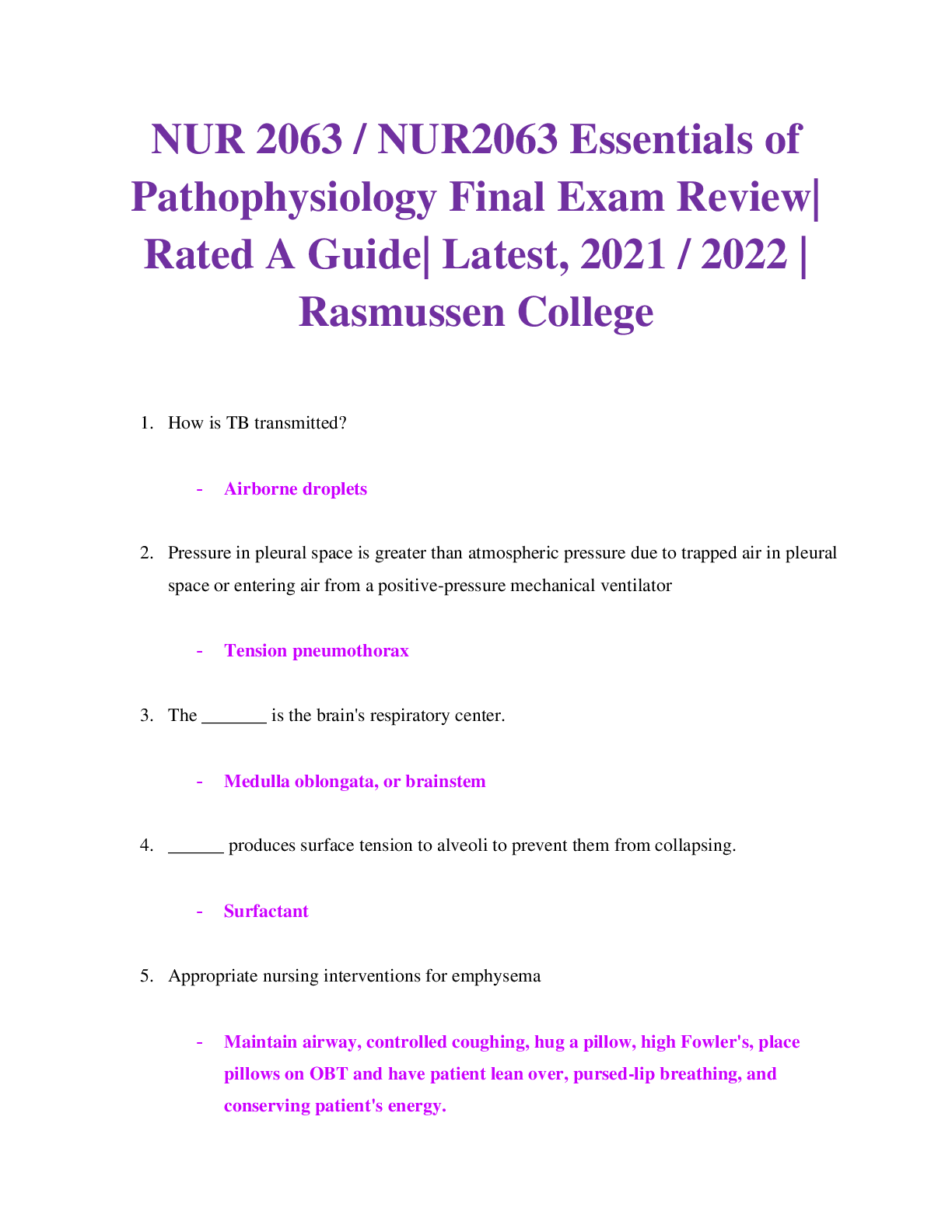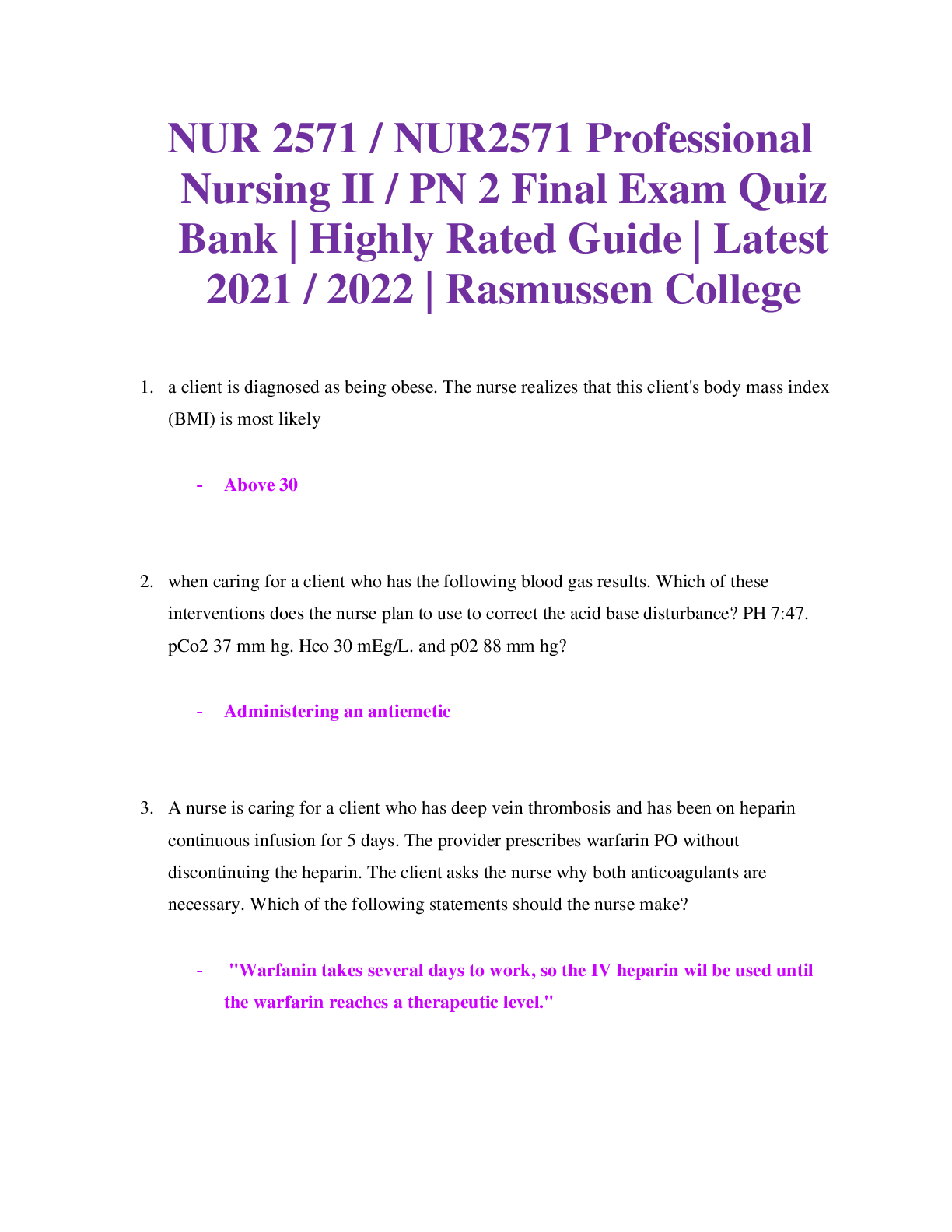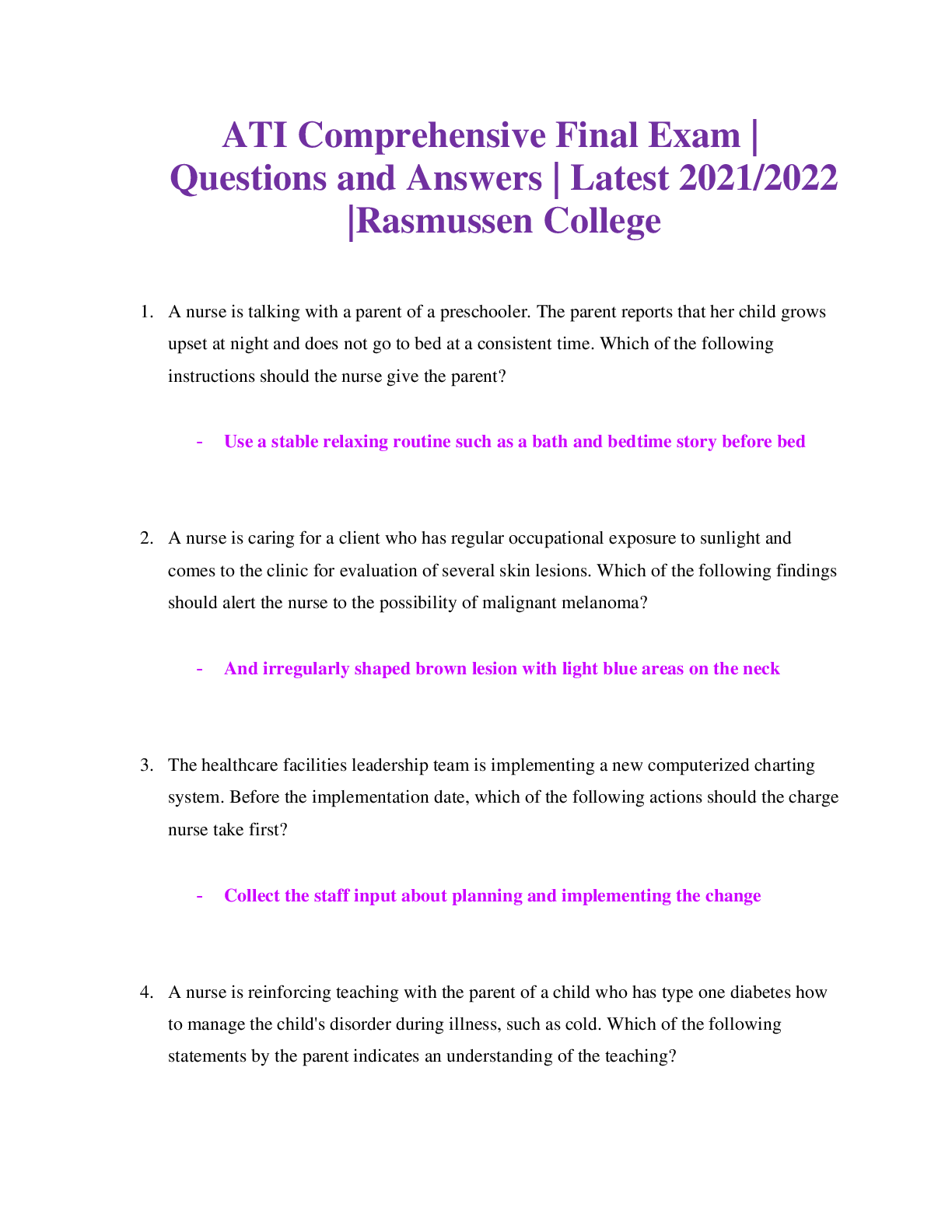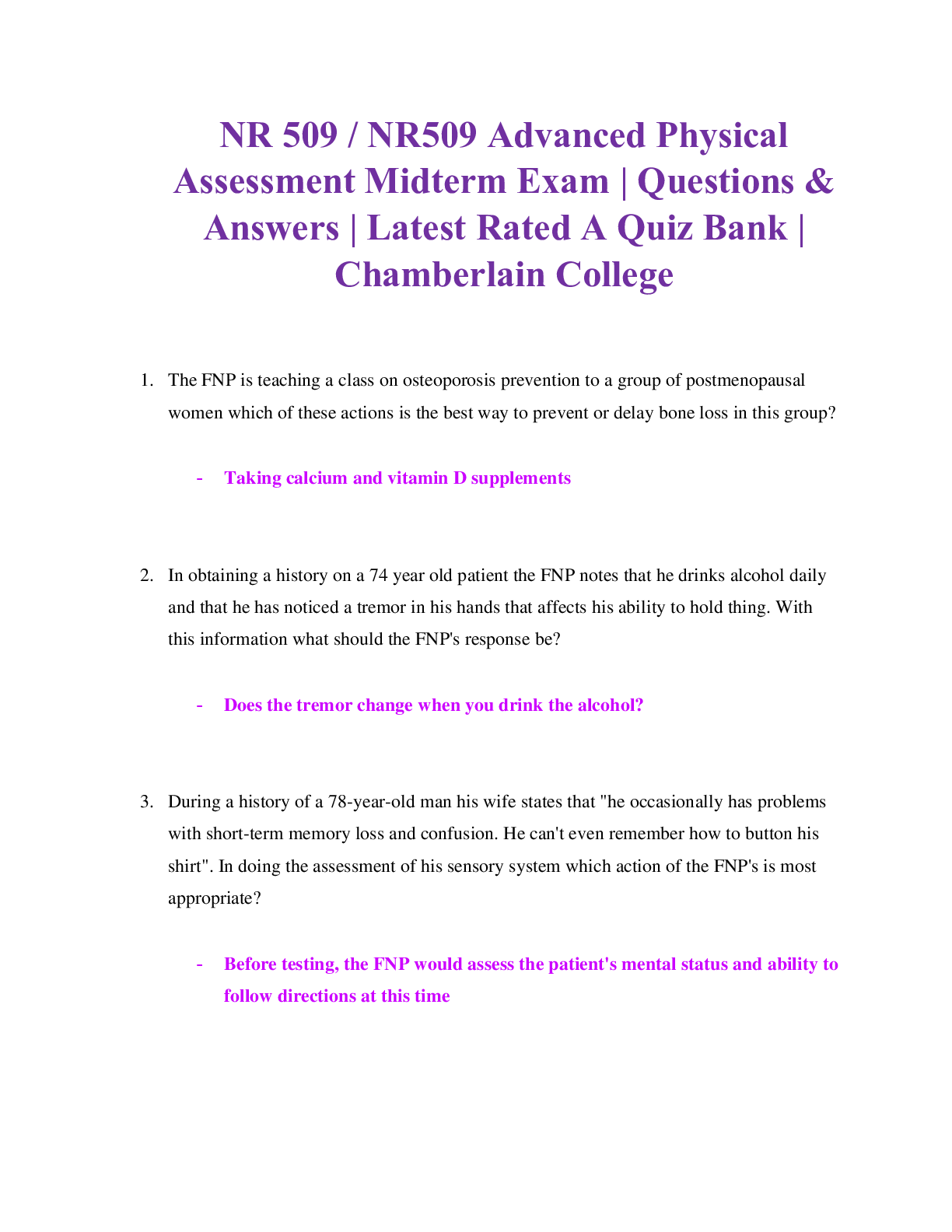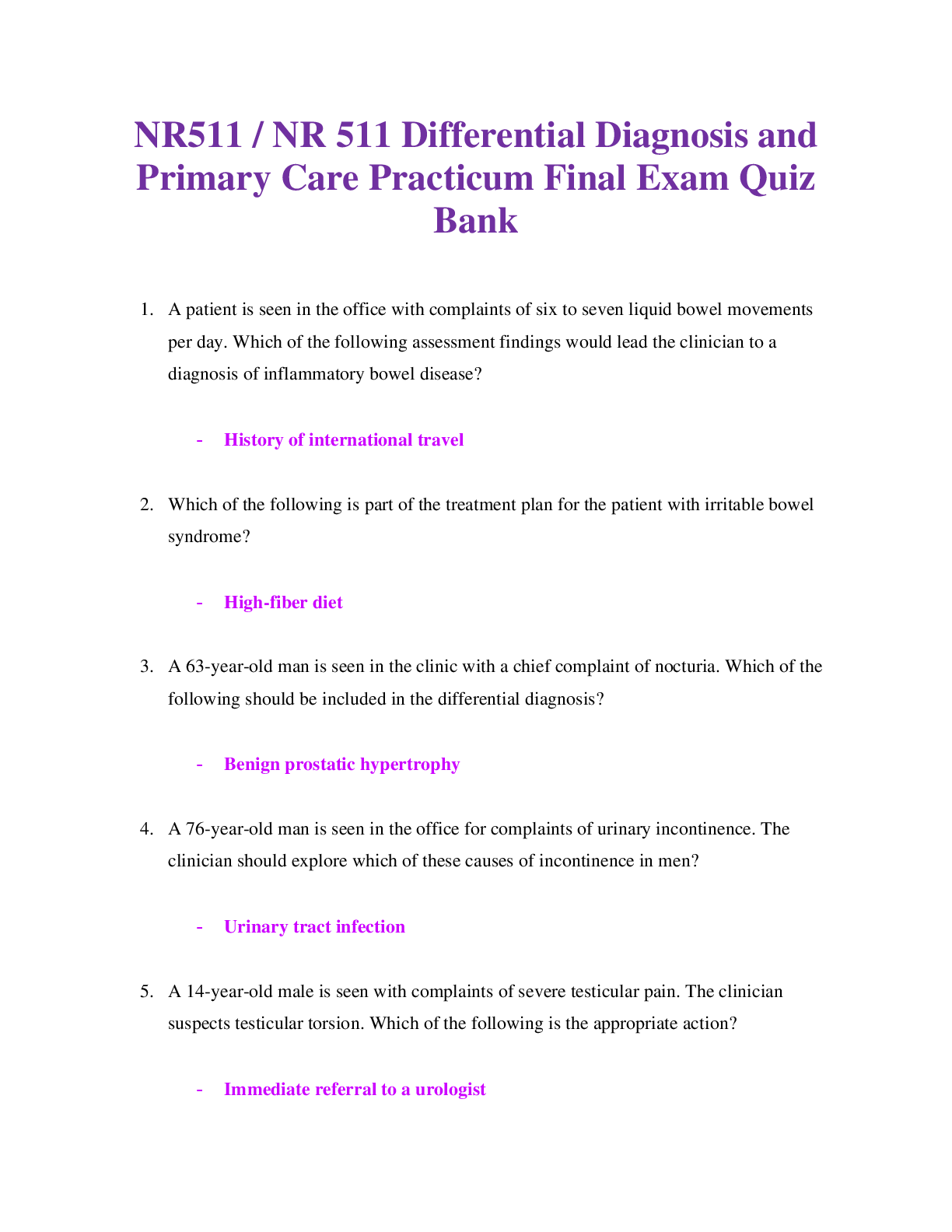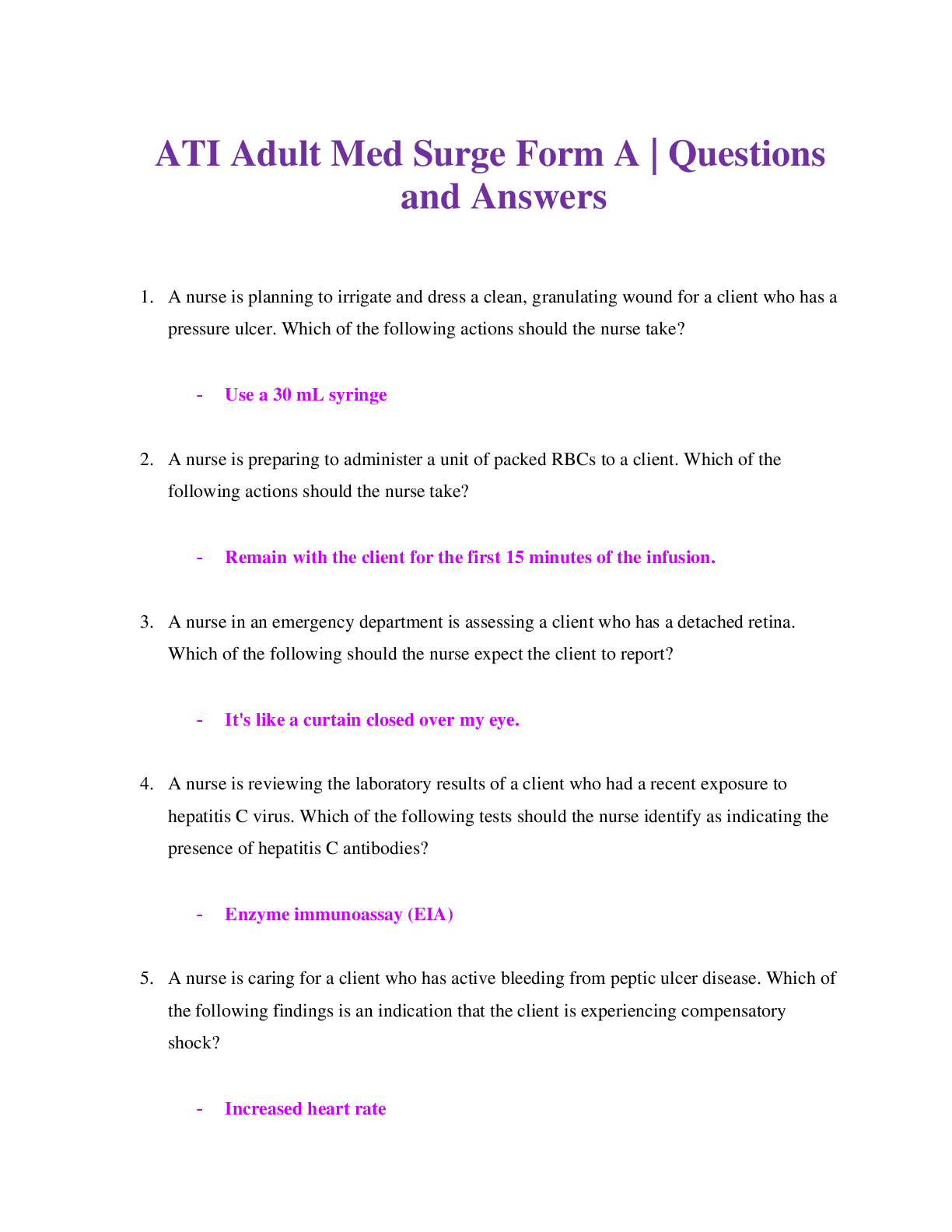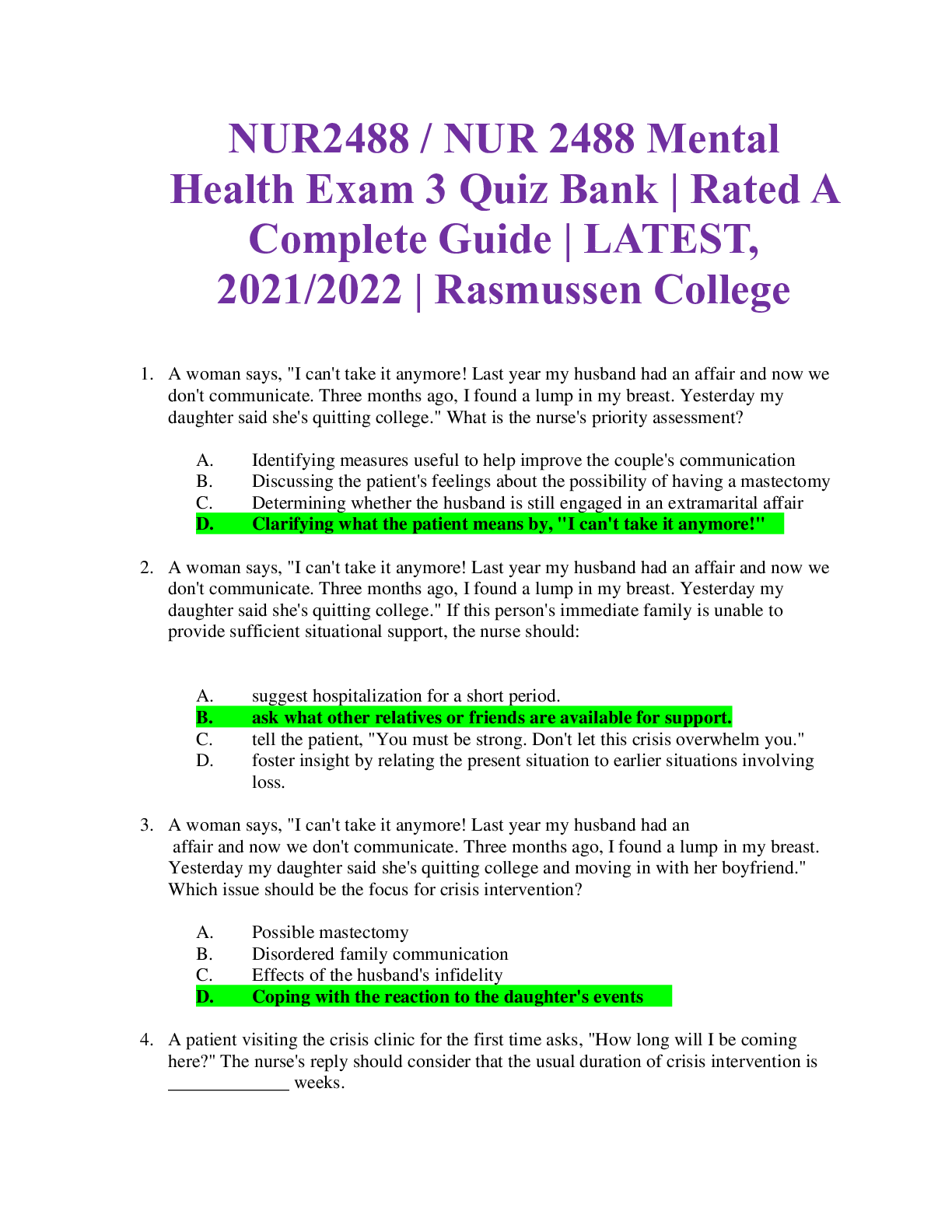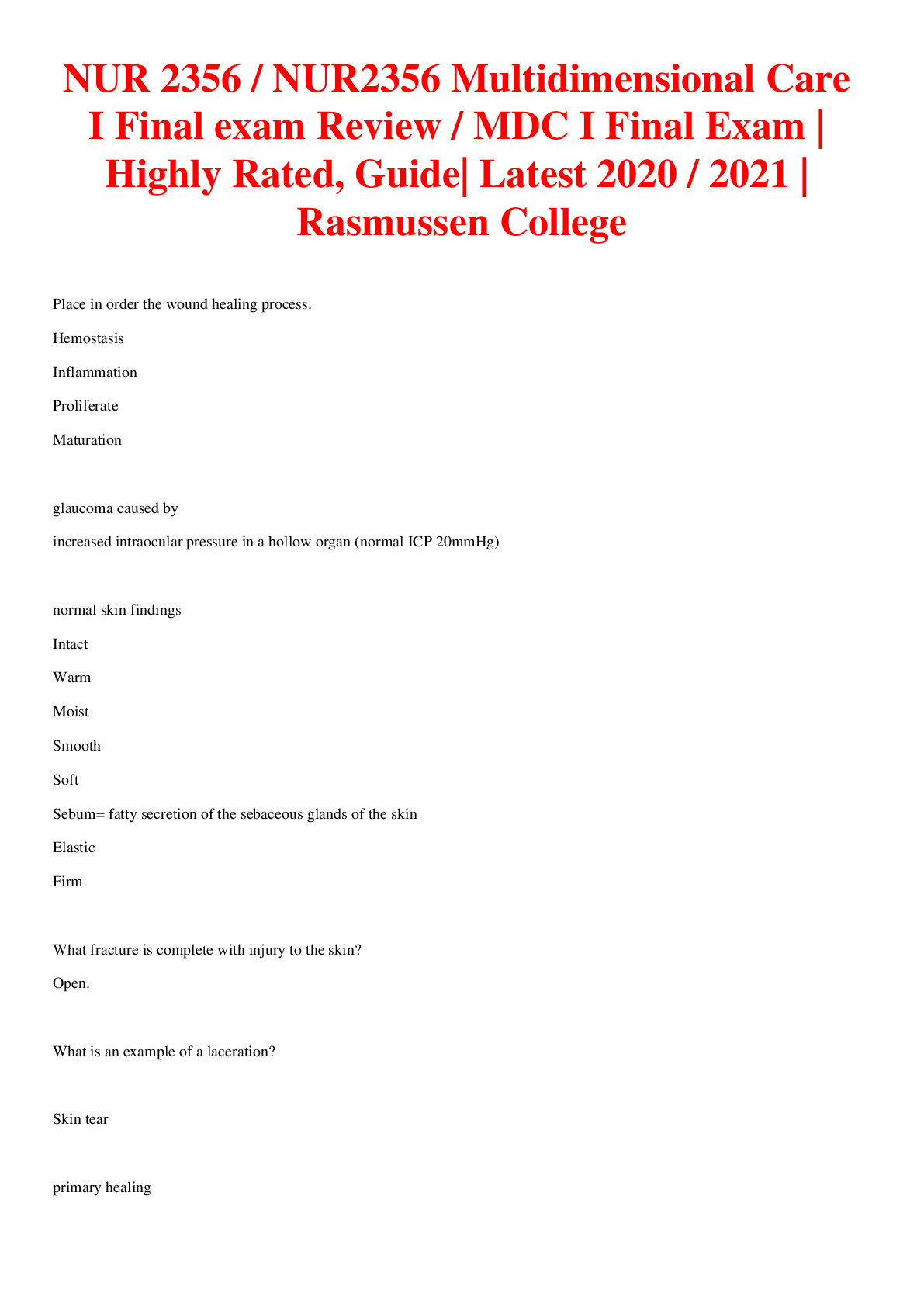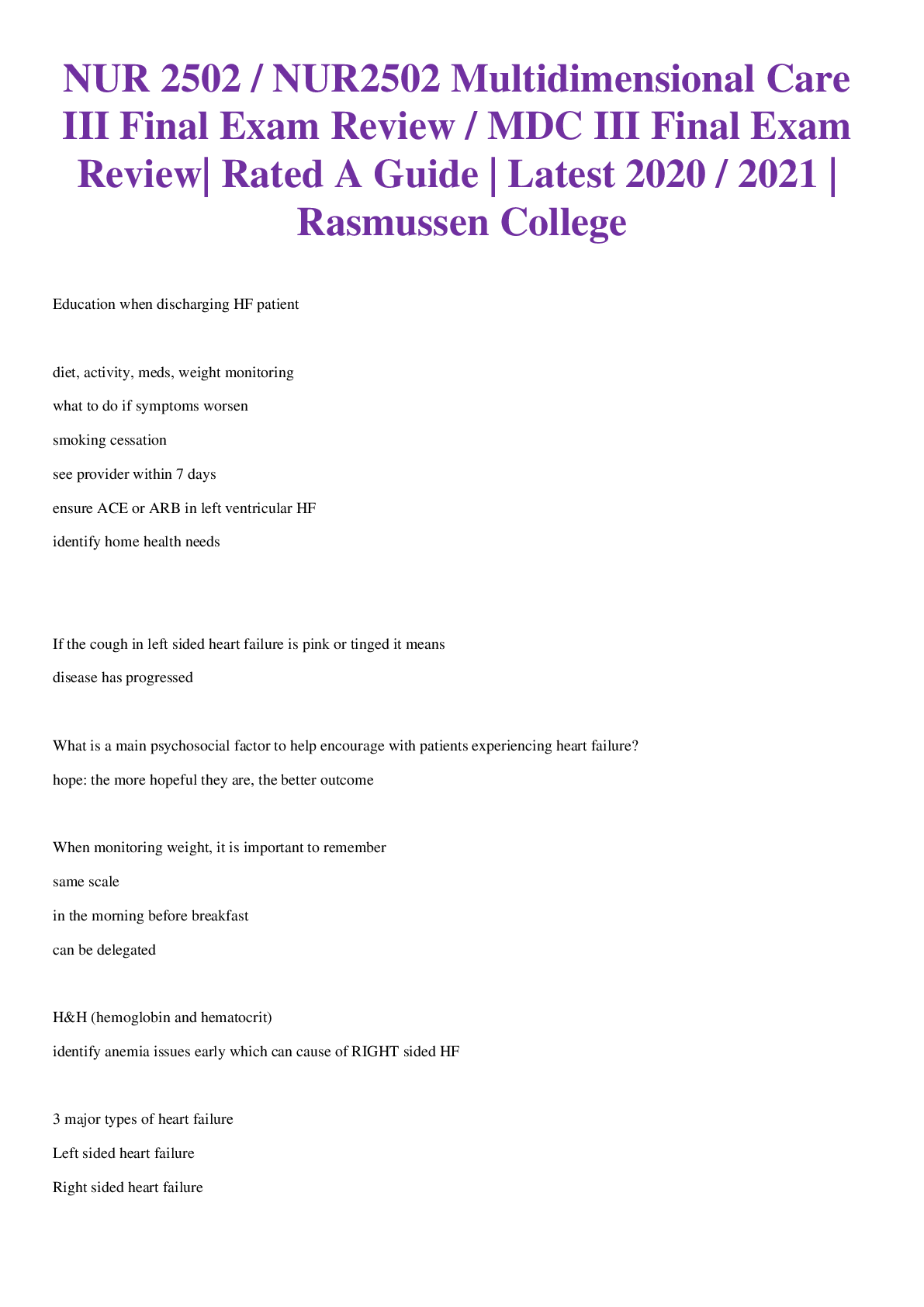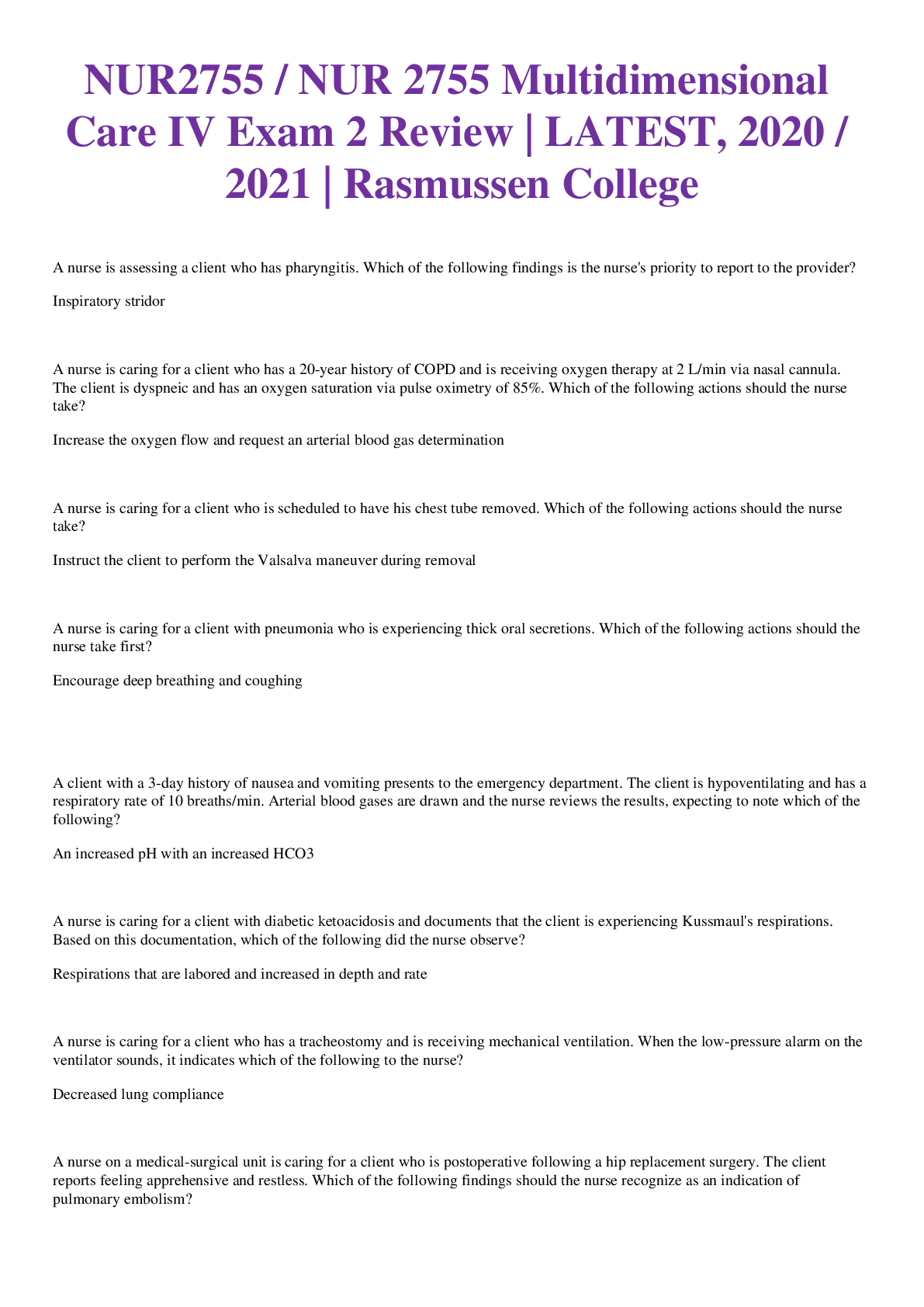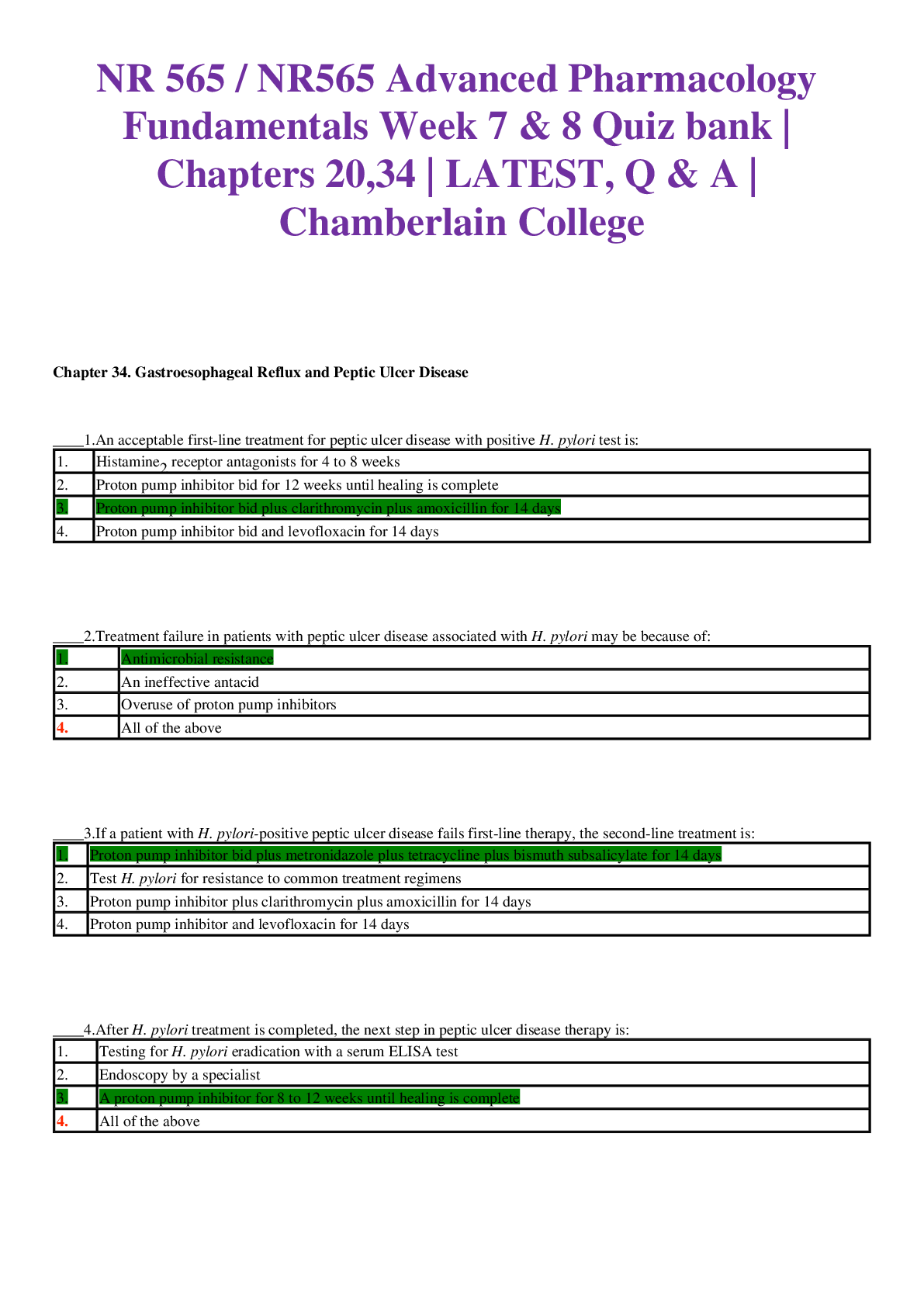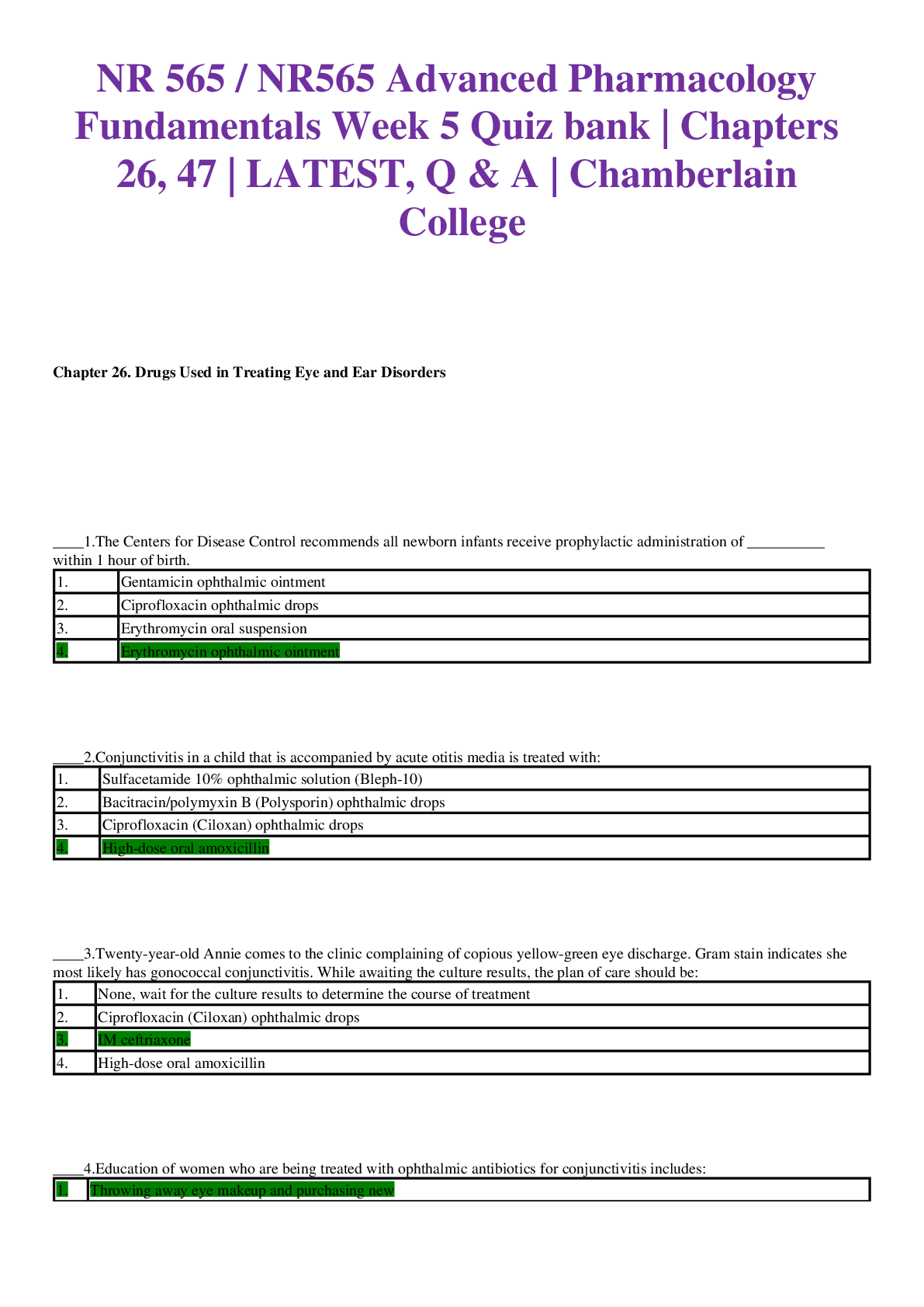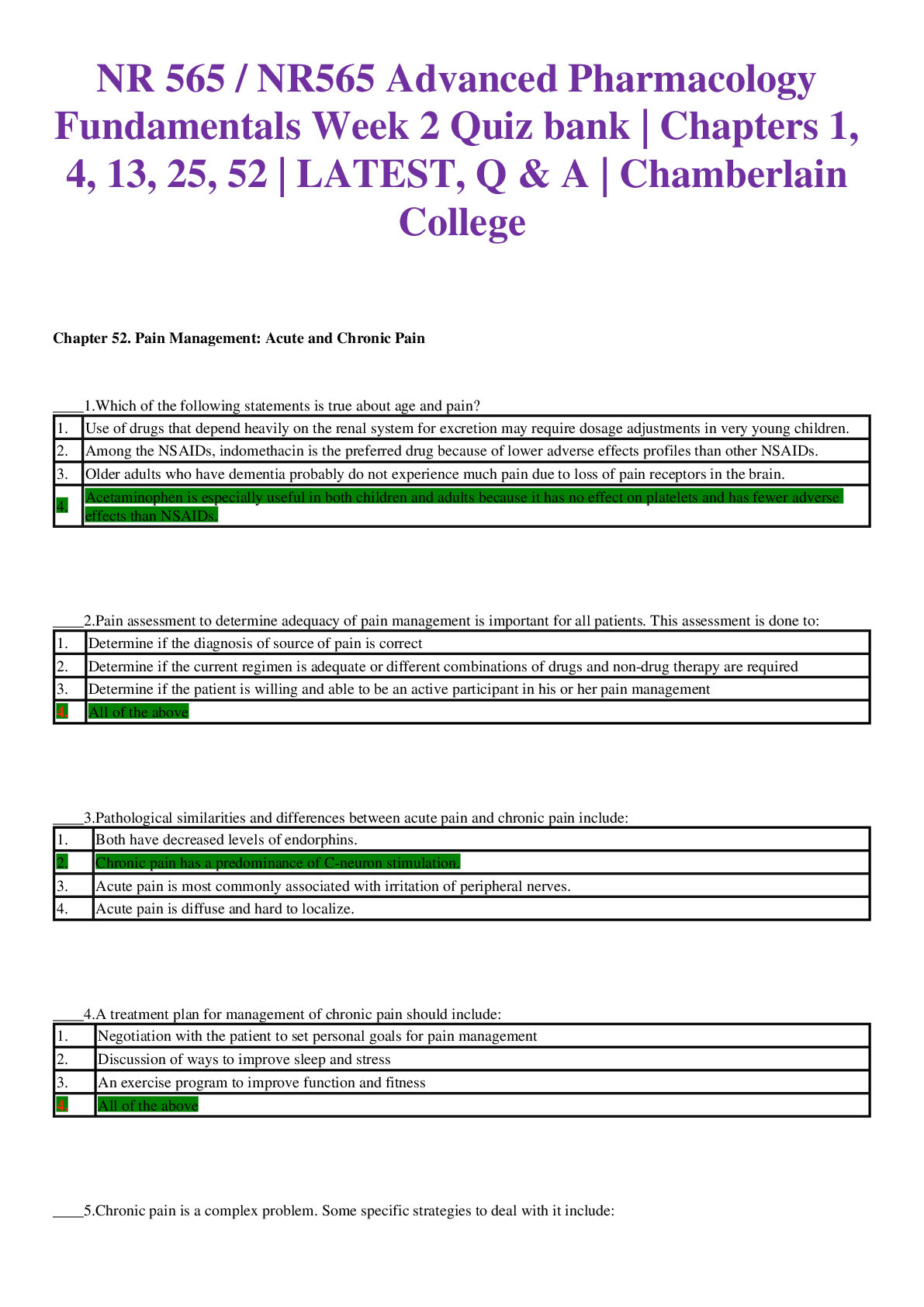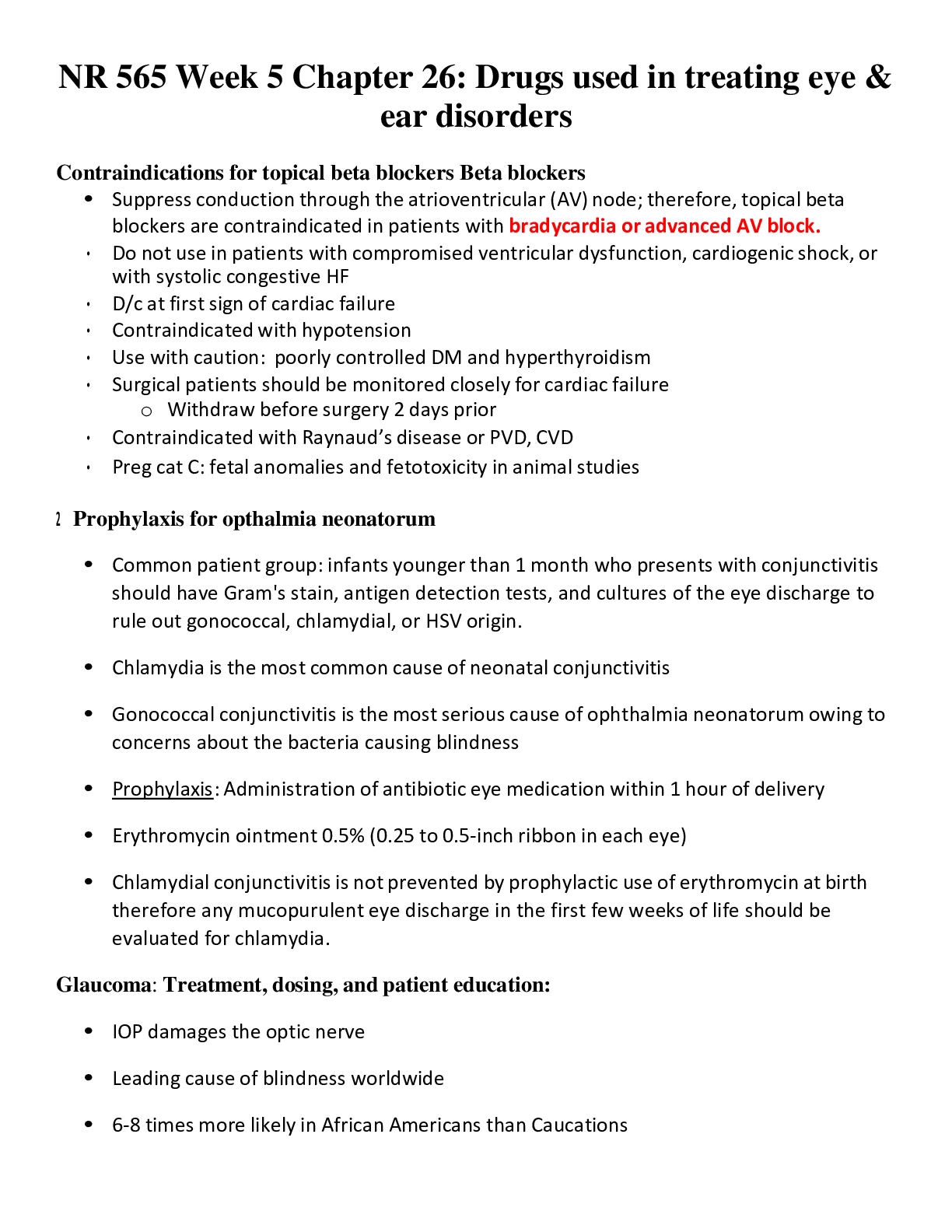*NURSING > EXAM > NR 565 / NR565 Advanced Pharmacology Fundamentals Week 4 Study Guide | Chapters 15,29,35 | LATEST, 2 (All)
NR 565 / NR565 Advanced Pharmacology Fundamentals Week 4 Study Guide | Chapters 15,29,35 | LATEST, 2020/2021| Complete Guide |Chamberlain College
Document Content and Description Below
NR 565 / NR565 Advanced Pharmacology Fundamentals Week 4 Study Guide | Chapters 15,29,35 | LATEST, 2020/2021| Complete Guide |Chamberlain College Chapter 35: Chronic Migraine and Cluster Headache... Chronic daily headache headaches 15 or more days a month for longer than 3 months • Chronic daily headaches (CDH) can be divided into five subtypes: o chronic tension-type headache o chronic migraine o hemicrania continua (Not in the study guide = not covered in depth) rare disorder that responds completely to indomethacin and to nothing else. Indomethacin (Indocin) 75 to 150 mg is given daily; doses up to 200 mg daily may be needed. Referral to a neurologist is recommended. o medication-overuse headache o new daily persistent headache. • Use of drugs for acute headache treatment more than 9 days a month is associated with increased risk of chronic daily headaches. • Medication-overuse is addressed later Pathophysiology: Patho of CDH is often unclear and of mixed origin. • There is a clear difference between chronic migraine and hemicrania continua (Not in the study guide = not covered). • The boundary between chronic tension-type headache and chronic migraine is less clear and may require a neurology referral for treatment. The term chronic migraine refers to CDH that starts as episodic migraine (less than 15 days a month) that transforms into a chronic pattern of greater than 15 days a month of migraine headache • It was formerly called “transformed migraine.” • The initial migraines have the pathogenesis of migraine discussed earlier. Chronic migraine is not well understood but is thought to be related to a combination of atypical pain processing, cortical hyperexcitability, neurologic inflammation, and central sensitization. • Risk factors for chronic migraine include female gender, history of head or neck injury, life stress, psychiatric disorders, and comorbid pain disorders Goals of Treatment The first goal of treatment for CDH is to break the pattern of daily headache. The patient is then stabilized on prophylactic or preventive therapy. [Show More]
Last updated: 2 years ago
Preview 1 out of 39 pages

Buy this document to get the full access instantly
Instant Download Access after purchase
Buy NowInstant download
We Accept:

Reviews( 0 )
$11.00
Can't find what you want? Try our AI powered Search
Document information
Connected school, study & course
About the document
Uploaded On
Nov 23, 2020
Number of pages
39
Written in
Additional information
This document has been written for:
Uploaded
Nov 23, 2020
Downloads
0
Views
105

